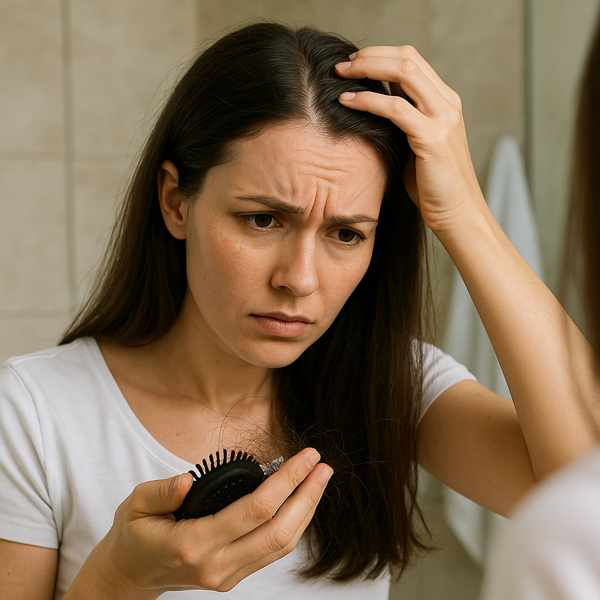
Losing weight is often a positive step toward better health, but it can sometimes come with surprising side effects — like hair loss.
Understanding why this happens and how to protect your hair can help you reach your goals without compromising your confidence.
Why Hair Loss Happens During Weight Loss
Hair loss during weight loss is usually a result of physical stress or nutritional deficiencies.
Common causes include:
- Nutrient deficiencies
- Extreme calorie restriction
- Shifts in metabolism or thyroid function
- The body reacts to sudden changes
Understanding Telogen Effluvium
Most hair loss related to weight loss is called telogen effluvium.
Key facts:
- There’s a delay between cause and effect
- Hair falls out evenly across the scalp
- It often resolves on its own
What Your Hair Needs to Thrive
If you're trying to lose weight, be sure not to miss these nutrients:
- Essential for hair structure and growth
- Carries oxygen to hair follicles
- Biotin and other B vitamins
- Zinc
- Linked to healthy follicles and hormonal balance
Skipping meals or using crash diets can easily lead to deficiencies that trigger hair loss.
Yes — With the Right Strategy
You don’t have to choose between losing weight and keeping your hair.
Tips include:
- Aim for 1–2 pounds per week
- Focus on whole, balanced meals
- Especially during calorie restriction
- Both affect hormones and hair health
- Hair needs water, too
What to Do If You’re Already Losing Hair
If you notice excessive shedding:
- Don’t panic
- Get bloodwork done
- Replenish what’s missing
- Try gentle hair care
- Be patient
Should You Talk to a Doctor?
A doctor or dermatologist can help identify underlying more info issues like:
- A common cause of both weight and hair changes
- Autoimmune conditions
- Need professional correction
The Truth About Weight Loss and Hair Loss
Weight loss and hair loss can be connected, but they don’t have to be permanent partners.
Prioritize nourishment, patience, and consistency, and your body will thank you — from head to toe.